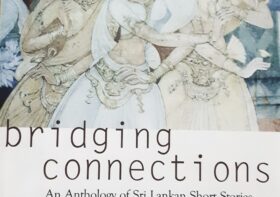The most human human – Brian Christian
All the world’s a stage, and all the men and women merely players: they have their exists and their entrances; and one man in his time plays many parts, his acts being seven ages.
– William Shakespeare.
ఈ నాటకానికి ప్రేక్షకులు ఎవరో గాని ఇంతటి slapstickని తట్టుకోగలుగుతున్నారా? అని నాకో పెద్ద అనుమానం. ఏదో ఒకడి జీవితాన్ని ఒక రెండు గంటల సినిమా చూసినట్టు చూసివెళ్ళిపోయేవాళ్ళకే ఎడతెగని వినోదం అయితే ఇక మానవజాతి పురోగతిని మొత్తంగా డైలీ సీరియల్గా చూసేవాళ్ళుంటే?! టివి వాళ్ళ భాషలో చెప్పాలంటే “ఎంటెర్నేమెంట్ కా బాప్!” అనుకోవచ్చునేమో!
మచ్చుకు ఒక కారెక్ట్రర్నే తీసుకుందాం. మనిషులందరికి ప్రతినిధి. తెలివైనవాడు. బతకనేర్చినవాడు. వాడిని ఏది అడిగినా చకచకా చెప్పేస్తాడు – రోదసి గురించి, సముద్ర గర్భంలో వింతలూ విశేషాల గురించి, సృష్టిలో ఉన్న జీవజాతుల గురించి – అడగిందే తడవుగా చెప్పేస్తాడు. ఒకవేళ సమాధానం లేకపోతే అహర్నిశలూ శ్రమించి ఆ రహస్యాన్నీ చేధిస్తాడు. కానీ “నువ్వెవరివి?” అని అడిగితే మాత్రం దిక్కులు చూస్తాడు. వృత్తినో, జాతీయతనో అడ్డం పెట్టుకోకుండా తానేంటో చెప్పుకోలేడు. విశ్వాన్ని జయించానని విర్రవీగుతున్న మనిషి ఇంకా తనని తాను గుర్తించుకోలేకపోతున్నాడు.
మునుపు, పశుపక్షాదుల కన్నా తానెంతో మెరుగైన జీవిని అని నిరూపించుకోడానికి చాలా కృషి చేశాడు. జంతువులను వేటాడాడు. పంటలు పండించాడు. నదులకు అడ్డుకట్టలు వేశాడు. భాషను కనుగొన్నాడు. తన ఆలోచలన్నీ భాషలోకి తర్జుమా చేసుకొని తరతరాలకూ సరిపడా విజ్ఞాన గనిని ఏర్పరిచాడు. ఇలా ఎన్నెన్నో విజయాలను సాధిస్తూ ఘోర పరాజయాలు ఎదురైన ప్రతిసారి ధైర్యంగా ఎదుర్కుంటూ ఉన్న మనిషి, సృష్టికి ప్రతిసృష్టి చేయాలని తలచి కొన్ని పరికరాలను చేశాడు. అందులో కొన్నింటికి తనంతటి మేధ (artificial intelligence) రావాలని నిర్విరామంగా కృషి చేస్తున్నాడు.
 ఒక కంప్యూటర్ మనిషిలా ఆలోచించగలదా? అన్న ఆలోచనలో నుండి పుట్టింది ఒక పరీక్ష – Turing Test. ఇందులో కొంతమంది న్యాయనిర్ణేతలు అవతల వైపున ఉన్నది మనిషో / కంప్యూటరో తెలీకుండా వాటితో సంభాషణను నడిపి, “మనిషిలా మాట్లాడం లేదు.” / “మనిషిలా మాట్లాడ్డం లేదు” అని పాల్గొన్న ప్రతి పోటీదారుకి ( కంప్యూటర్ / మనిషికి) ఓటు వేస్తారు. ఓ కంప్యూటర్కి గానీ అత్యధికంగా “మనిషిలా మాట్లాడుతుంది” అని ఓట్లు వస్తే దాన్ని “The most human computer”గా గుర్తిస్తారు. ఈ పరీక్షను మనిషి ఆలోచించే విధంగా మాట్లాడే విధంగా కంప్యూటర్లనీ తయారుచేయవచ్చుననే ప్రయత్నంలో ఎంత పురోగతి సాధించాడన్న దానికి ప్రతీకగా తీసుకోవచ్చు. కొన్నేళ్ళ కిందట ఒక కంప్యూటర్ పరీక్షలో ఒకే ఒక్క ఓటుతో ఓడిపోయింది.
ఒక కంప్యూటర్ మనిషిలా ఆలోచించగలదా? అన్న ఆలోచనలో నుండి పుట్టింది ఒక పరీక్ష – Turing Test. ఇందులో కొంతమంది న్యాయనిర్ణేతలు అవతల వైపున ఉన్నది మనిషో / కంప్యూటరో తెలీకుండా వాటితో సంభాషణను నడిపి, “మనిషిలా మాట్లాడం లేదు.” / “మనిషిలా మాట్లాడ్డం లేదు” అని పాల్గొన్న ప్రతి పోటీదారుకి ( కంప్యూటర్ / మనిషికి) ఓటు వేస్తారు. ఓ కంప్యూటర్కి గానీ అత్యధికంగా “మనిషిలా మాట్లాడుతుంది” అని ఓట్లు వస్తే దాన్ని “The most human computer”గా గుర్తిస్తారు. ఈ పరీక్షను మనిషి ఆలోచించే విధంగా మాట్లాడే విధంగా కంప్యూటర్లనీ తయారుచేయవచ్చుననే ప్రయత్నంలో ఎంత పురోగతి సాధించాడన్న దానికి ప్రతీకగా తీసుకోవచ్చు. కొన్నేళ్ళ కిందట ఒక కంప్యూటర్ పరీక్షలో ఒకే ఒక్క ఓటుతో ఓడిపోయింది.
ఇక్కడి దాకా కథ బానే ఉంది. మనిషి సాధిస్తున్న అనితరసాధ్య విజయాల్లో ఒకటిగా పరిగణించి ఊరుకోవచ్చు. ఇందాక చెప్పుకున్న పరీక్షలో అసలైన తిరకాసేంటంటే మనిషితో పోటీపడి మనిషంత-గొప్ప అని కంప్యూటర్ ఎలా నిరూపించుకోడానికి ప్రయత్నిస్తుందో కంప్యూటర్ని ఓడించి మనిషే-గొప్ప అని నిరూపించుకోడానికి తపన పడుతున్నాడు మనిషి. జడ్జీలు వేసిన ఓటింగ్లో పోటిదారైన మనిషికి “మనిషిలా మాట్లాడుతుంది.” అన్న ఓట్లు అత్యధికంగా వస్తే అతణ్ణి, “The most human human” అని సత్కరిస్తారు. అనగా, మనిషైనవాడు మనిషిగా ప్రవర్తించి, ఆలోచించి, మాట్లాడినందుకుగానూ ఆ పురస్కారం! (ఇక ఇలా అయితే ఎలాగో మరి! :P)ఈ పరీక్షకు హాజరై, కంప్యూటర్లతో పోటీ పడి, మనిషి-తనాన్ని నిరూపించుకొచ్చిన ఒకతను, తానీ పరీక్షకు ఎలా సన్నద్ధం అయ్యాడో వివరంగా రాసిన పుస్తకమే, నేను పరిచయం చేయబోతున్నది. (అదే.. చేస్తూ ఉన్నది.)
పరీక్షలకు ముందుగా ప్రిపేర్ అయి ఆనక పరీక్షలు రాసే సంస్కృతి మనిషికి బాల్యం నుండే అలవడినా ఇతగాడి కష్టాలు అన్నీ ఇన్నీ కావు మరి! ఒకటి: సకల మానవజాతికీ ప్రతినిధిగా వెళ్తున్నాడు. ఓడాడో, మనుషుల మీద మెషీన్లు నెగ్గినట్టే. అందుకని గెల్చి తీరాలి. అక్కడ చేయాల్సింది చాలా తేలిక: మనిషిలా ఆలోచించి, మనిషిలా మాట్లాడి, అవతలెక్కడో ఉన్న మనిషిని తాను మనిషినని నమ్మించటం.
“మనిషిలా మాట్లాడితే సరిపోతుంది.” అన్నది సమాధానం. కానీ మనిషిలా మాట్లాడ్డం అంటే? మనిషిలా వ్యవహరించటం అంటే?
“తెలుగు కోసం ఒకటి నొక్కండి.. ఇంగ్లీషు కోసం రెండు నొక్కండి” – మెషీన్ అని తెల్సిపోతుంది. కాని అచ్చంగా అలానే మాట్లాడి విసిగించే మనుషుల సంగతేంటి? ప్రేమలూ-ప్రణయాలు కొత్తవి కావు మనిషికి. అయినా అనామకుల వలలో పడి ఆనక అవి మనుషులు కాదు, మెషీన్లు అని తెల్సుకొని హృదయాలు పగిలిన సందర్భాలూ ఉన్నాయే! ఒక చాట్ చేసేటప్పుడు మనిషికి తన హావభావాలు ప్రదర్శించటానికి చాలా పరిమితులు ఏర్పడతాయి. వాటిని తమ లాభానికి వాడుకోగలవు కంప్యూటర్లు. వాటి జిమ్ముకులకు తేలిగ్గా పడిపోగలరు జడ్జీలు. ఇన్ని సవాళ్ళ మధ్య ఈ పరీక్షకు ఎలా సన్నద్ధమయ్యాడో కూలంకషంగా చర్చించిన తీరు అభినందనీయం.
అన్నింటికన్నా ముఖ్యమైన విషయం ఈ పుస్తకం sub-text: What talking to computers teaches us about what it means to be alive. ఒక కంప్యూటర్తో మాట్లాడ్డం ద్వారా తనలో మనిషి-తనం ఎంతో నిర్జీవంగా ఒకరి ఆదేశాలకు లోబడే పనిచేసే యంత్రంగా కాక ఒక మనిషిగా బతకటం ఎంతటి అనుభూతో తెల్సుకునే ప్రయత్నం చేస్తారు రచయిత. (దీన్నే రాండీ, హెడ్ ఫేక్ అంటారు. చేస్తున్నది ఒకటి, కాని తెల్సుకుంటున్నవి వేరేవి!) ఇదేదో ఒక పోటీలో మోగించిన విజయఢంకా గురించి చెప్పుకోవటం కాదు. “taken-for-granted”గా తీసుకున్న మన మేధనూ, జీవనవిధానాల్ని, బంధాలనీ, ఆశనిరాశల్నీ- అన్నింటినీ ఓ మారు గుర్తు చేసుకొని మనిషైనందుకు సగర్వంగా తలెత్తుకునే సందర్భం అని గుర్తించారు. అది పుస్తకం రూపేణ అందించి మరింత మందికి స్ఫూర్తిదాయకం అయ్యారు.
ఇందులో చెప్పలేనన్ని అంశాలను గురించి ప్రస్తావించారు. వాటిపై ఆలోచించే విధంగా వ్యాఖ్యానించారు. మనిషి కవిత్వాలు రాసినట్టుగా కంప్యూటర్లూ రాయగలవా? ఇప్పటికే ఉన్న సాహిత్యాలను కంప్యూటర్లు తర్జుమా చేయగలవా? గూగుల్ ట్రాన్స్ లేటర్ ఎంత మెరుగైనది? గారీ కాస్పరోవ్ని చదరంగంలో ఓడించిన కంప్యూటర్ కథ, తెరవెనుక కమామిషు ఏంటి? మానవసంబంధాలు ఏ విధంగా ఉన్నాయి? మనిషి మనిషితో సంభాషించే తీరుతెన్నులు ఎలా ఉన్నాయి? నిజంగా మెషీన్లు మనిషి మేధోశక్తిని అధిగమిస్తే సినిమాల్లో చూపించినట్టు మానవజాతికి దుష్పరిణామాలు తప్పవా? – ఇలా ఎన్నో ప్రశ్నలు.
పుస్తక విషయం కంప్యూటర్ల గురించే అయినా పుస్తకాన్ని చదవడానికి కంప్యూటర్ నేపధ్యం అవసరం లేదు. వరమిచ్చి నెత్తిమీదకు తెచ్చుకున్న చందాన, మనిషి తన ప్రయోగాలతో తన ఉనికినే ప్రశ్నార్థకం చేసుకుంటూ వాటికి సమాధానాలు వెతుక్కుంటూసాగే ప్రయాణ విశేషాలు చదువుకోడానికి బాగుంటాయి. అక్కడక్కడా చాలా నవ్వు తెప్పిస్తుంది. అప్పుడప్పుడూ నిట్టూర్పులు మాత్రం తప్పవు.
You can think of criticism as compression too: a work of literature must strain to survive and outlast its own marketing and its own reviews, which threaten, in a sense, to deliver a lossy compression of the book itself. Anything said about a piece of art enters into competition with the art itself.
నేను చేసినది.. ఒక lossy compression! అసలు పుస్తకంలో విషయం ఎంత అన్నది మీరే చదువుకోవాలి. It could be boring at times, still worth reading.
(ఇది ఈ పుస్తకానికి పరిచయ వ్యాసం మాత్రమే! పుస్తకవిషయాన్ని సమగ్రంగా విశ్లేషించేలా రాయాలంటే ఈ పుస్తకాన్ని ఇంకోసారైనా తప్పక చదవాలి. అన్నట్టు చదివినవారికెవ్వరికైనా ఇష్టాగోష్టిలో పాల్గొనే ఆసక్తి ఉంటే ఇక్కడ ఒక కామెంట్ లేక పుస్తకం.నెట్కు ఒక మెయిల్ పంపండి. వీలుచూసుకొని ఒక రాయి విసురుదాం.)
_________________________________________________________________
Details of Book:
The most human human: What talking to computers teaches us about what it means to be alive.
Author: Brian Christian
Author talks – video
Paris Review interviews Author.





Independent
Yes, you are absolutely right, they are distinctly different. And yes, similar tricks are being pulled on almost everyday basis in some parts of the real world, although I might say that the establishment of Priya, Srujana & Vaishnavi characters in “real human” minds was easier in the world of “talking through computers”.
Yet, the very basic idea discussed in this book is, how do you prove yourself that you are human, when you talk “to” computer which was talking “like” human?
Going back to the in-famous case, assuming “real-human”(say, a real person on google buzz) on one side is the super-computer with super-algorithm which does exactly what human does, and assuming Priya on the other side of the buzz is the “real human”, then the onus is now on Priya to prove that she is real human.
And this is where I differ from you. As long as “Priya” stayed on the subject of tennis, it was easy for “her” to prove that she was a real human, to the real person on the other side of the buzz, was it not?
And this is what Brian was talking about in the book. A computer can/could talk “like” human, as long as you don’t throw it off with moody, obnoxious and irritable talk(like humans do), at which point of time it couldn’t process anymore.
You might say, still, Priya was being helped by Geetacharya on the other end, who is a real human, not a computer. Yes.. after reading this book however, how difficult do you think, is it to develop an algorithm which can talk exactly like Priya did on buzz, ABOUT TENNIS, including cheering up for the excellent back-hand shot that Federer just played? For all I know, those algorithms are already out there.
I have to confess though, yes I did try to blur the line a bit, but I was hoping to show a very relative incident which is still not forgotten by telugu bloggers, so that their interest in the book increases.
After all, doesn’t Brian talk about the UC San Diego’s Psychologist, who fell in love with a person, and exchanged long love letters, only to find in the end that, a computer-algorithm was writing those letters with ‘growing-feelings”? :-))
As to your last question, I think a human being takes more offense, with the fellow-human. I believe he “classifies” it as an embarrassment in case of machine. In either case though, I guess he can easily forget, if no fellow human in his/her circle come to know of it.
Purnima
@Independent:
“తెలుగు బ్లాగుల్లో ఈ మధ్య గీతాచార్య పుల్ చేసిన ప్రియా-సృజన ట్రిక్ గురించి తెలిసిన వాళ్ళు, ఈ పుస్తకాన్ని చదివితే మరింత అప్రెషియేట్ చేయగలరేమో.”
How? My gut feeling is that that trick might have worked in non-internet associations too. Don’t you think so? For me, talking through computers and talking with computers are distinct.
However, I’m not sure, when a human being takes more offense… when cheated by a fellow human or by a machine.
Independent
వావ్. . ఈ పుస్తకం గురించి ఇంత అందంగా, కనెక్టింగ్ గా రాయటం బహుశా మీ ఒక్కరికే చాతవుననుకుంటాను పూర్ణిమా. మీ రచనా శైలి అమోఘంగా పెరుక్కుంటూ వచ్చింది గత కొన్ని సంవత్సారాల్లో. శిరస్సు వంచితిమి, మనస్ఫూర్తిగా.
Already ఈ పుస్తకం చదివిన నాకు, at times dry గా ఉండే పుస్తకాన్ని, ఒక్క పదం కూడా బోర్ కొట్టకుండా ఆద్యంతం ఆసక్తిగా రాసిన మీ శక్తికీ, మీ పుస్తక పరిచయానికీ జోహార్లు. రెండవ సారి చదివినప్పుడు మీ పరిచయం మరింత నచ్చింది.
మీరన్నట్లు కొన్ని చోట్ల చాలా నవ్వు తెప్పించటమే కాదు, కొన్ని సార్లు నన్ను భయపెట్టిందీ పుస్తకం.
తెలుగు బ్లాగుల్లో ఈ మధ్య గీతాచార్య పుల్ చేసిన ప్రియా-సృజన ట్రిక్ గురించి తెలిసిన వాళ్ళు, ఈ పుస్తకాన్ని చదివితే మరింత అప్రెషియేట్ చేయగలరేమో.